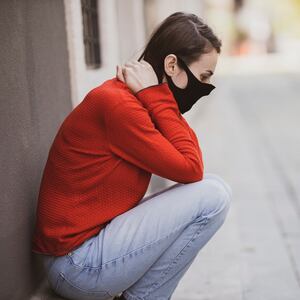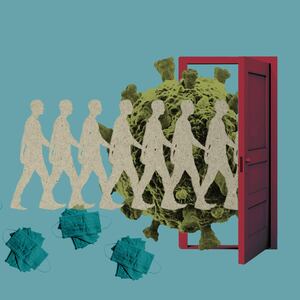Though the world has mostly wound down the last vestiges of emergency pandemic restrictions, the effects of COVID will be felt for years. For some individuals, it’s a matter of personal health—and there are no signs that things will get better any time soon. A new Swiss study published in BMJ Wednesday reveals that more than one out every six unvaccinated people who have previously come down with COVID have not returned to normal health up to two years after infection.
The findings underscore the concerns around long COVID, as scientists continue to be stumped over how and why the aftereffects of infection linger for so long for some individuals. But the new study also reiterates urgency to get vaccinated—the best prevention against long COVID continues to be vaccination.
The new findings are based on the experiences of 1,106 unvaccinated adults living in Switzerland, who were an average age of 50, and had a confirmed COVID infection between August 6, 2020 and January 19, 2021. Participants reported on information pertaining to 23 potential symptoms of long COVID at 12, 18, and 24 months after infection had subsided. Those symptoms included physical pain, malaise, altered taste and smell, shortness of breath, mental health issues, and anxiety. The study also took a look at 628 Swiss adults who had never contracted the virus.
What the researchers found was that 55 percent of the previously infected population who were unvaccinated returned to normal health less than a month after they were cleared of the virus, and 18 percent were back to normal by three months. But by six months, 23 percent still had not recovered. By 12 months, 19 percent were still experiencing symptoms; and by 24 months 17 percent had not fully recovered.
Those unvaccinated individuals who didn’t recover quickly were more likely to be older or have pre-existing health issues.
The study does have its share of limitations. For one, the findings are based solely on a Swiss population. And they are based on self-reported health, which is less reliable than a doctor’s assessment.
Still, the new study adds on to concerns about the prevalence of long COVID, especially for the unvaccinated. It’s only recently that health authorities in the U.S. provided a clearer definition of what long COVID is and what kinds of symptoms patients experience. Although COVID has moved to the background of people’s minds, vaccination remains paramount to ensuring that an infection does not lead to worsened symptoms that last for months or even years.
“Post-COVID-19 condition remains a global public health crisis,” University of Southern California population health researcher Qiao Wu, who was not involved in the study, wrote in a BMJ editorial accompanying the study. “Understanding the trajectory of symptom burden and recovery from post-COVID-19 condition is crucial for policy making, treatment decisions, and care coordination.”







